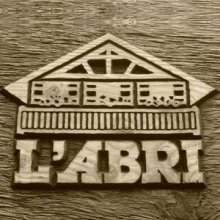
L'Abri is in the process of establishing a presence in South Africa. To celebrate this, a few events were held over the weekend around Cape Town, and I was fortunate enough to be able to attend a couple; both small workshops. L'Abri South Africa will be based in Johannesburg.
About L'Abri
L'Abri was founded in the 1950s by Francis and Edith Schaeffer in Switzerland. The purpose of L'Abri is to help people with honest and sincere questions about life, purpose, reality, and so forth to explore these topics and have fruitful discussions about them. "L'Abri" mean "The Shelter" in French, and it is intended to be a shelter for people who have needs along these existential lines, and to serve and love them.
The way through which L'Abri operates is community. When one walks into L'Abri, one becomes part of a community. One works (in terms of chores) and eats together. Group discussions are also held during mealtime to encourage the practice of having conversations over what is being studied and learned. Study is expected to happen by oneself, because everyone is at a different level and have different nuances in their questions. But each person has a facilitator who can guide that person as the need arises. The asking of informed and intelligent questions in a polite and hospitable manner is encouraged.
L'Abri is described as an "extreme faith" ministry, in the sense that it does not do any fund-raising or recruitment. They wholly rely on the provision of the Holy Spirit. Through the provision of the Holy Spirit, they have been able to establish a presence in several other countries and continents beyond Switzerland, with South Africa being the latest. There is no concrete plan for which direction L'Abri in South Africa will go: the intention is to rather allow the Holy Spirit to germinate their presence here and grow it as is necessary.
The Workshops
Over the weekend several events were held, of which I attended two short workshops: a Worldview Seminar and a seminar on Comprehensive Spirituality. Below are very terse summaries of topics which we already condensed by the speakers.
Worldview Seminar
The Worldview Seminar was hosted by Ellis Potter, a longtime worker at L'Abri in Switzerland. In it he briefly discussed three different types of worldview: Monism, Dualism and Trinitarianism.
Monism is the view of Buddhism and Hinduism, where everything is One. Any division which exists is illusionary and a corruption of what Is. Reincarnation is a prison: it serves only to provide another opportunity for someone to realise their true place in the universe and escape the cycle by become part of the universal One.
Dualism is more prevalent in the Far East, in religions such as Taoism and Confucianism. It focuses on dualities: hot and cold, good and evil, light and dark. The world functions best when it is in harmony and there exists balance between these extremes.
Trinitarianism is distinctly Christian. It both rejects and affirms the extremes of Monism and Dualism. For example, within the Godhead there is unity (there is only one God), and there is balance (the roles fulfilled respectively by the Father, Son and Holy Spirit). Another example is that of subjectivity and objectivity which exists in both Christianity. God is objective, but the Father, Son and Holy Spirit each have subjective points of view. Yet any differences between them are perfect. By looking at these examples (and others), a person can learn about reality and their purpose within the world.
A second talk given in this seminar, by Thorsten Marbach, considered at what a comprehensive worldview looks like. It also addressed how important it is to live out a worldview sincerely (that is, in every aspect of life), and how an untrue and inauthentic worldview can be damaging.
Comprehensive Spirituality
The Sunday seminar began with gathering perspectives on what spirituality is. It was emphasised that the spiritual is found in both the supernature and in nature. The main discussion was around the characteristics which (all taken together) make humans spiritual beings:
- Creative
- Rational
- Moral
- Language
- Society
- Physical body
- Emotions
For a person to be "spiritually healthy", these all need to be fully realised (subjective) according to the manner in which these characteristics were given to humans in an intended way (objective). These characteristics were distorted by the Fall, and can only be fully restored by the redemptive work of Jesus on the cross.
Emphasis was also placed on getting out of the dualistic, (neo-)Platonic view which many Westerners intuitively have of thinking of nature as separate from the supernature. This is exactly the manner of thinking which the early Christians struggled against, and was arguably the main apologetic of the Gospel of John.
Throughout these seminars we were challenged to carefully think about our questions, and what we mean by words for which we take the meaning for granted, but could be interpreted completely differently by other people.
Conclusion
I am excited about L'Abri coming to South Africa. My excitement does not come from the "celebrity factor", but because many South Africans (and visitors) need to be confronted with the difficult questions of life, and challenged about their basic assumptions about reality. May God facilitate this work through L'Abri South Africa!







Latest comments